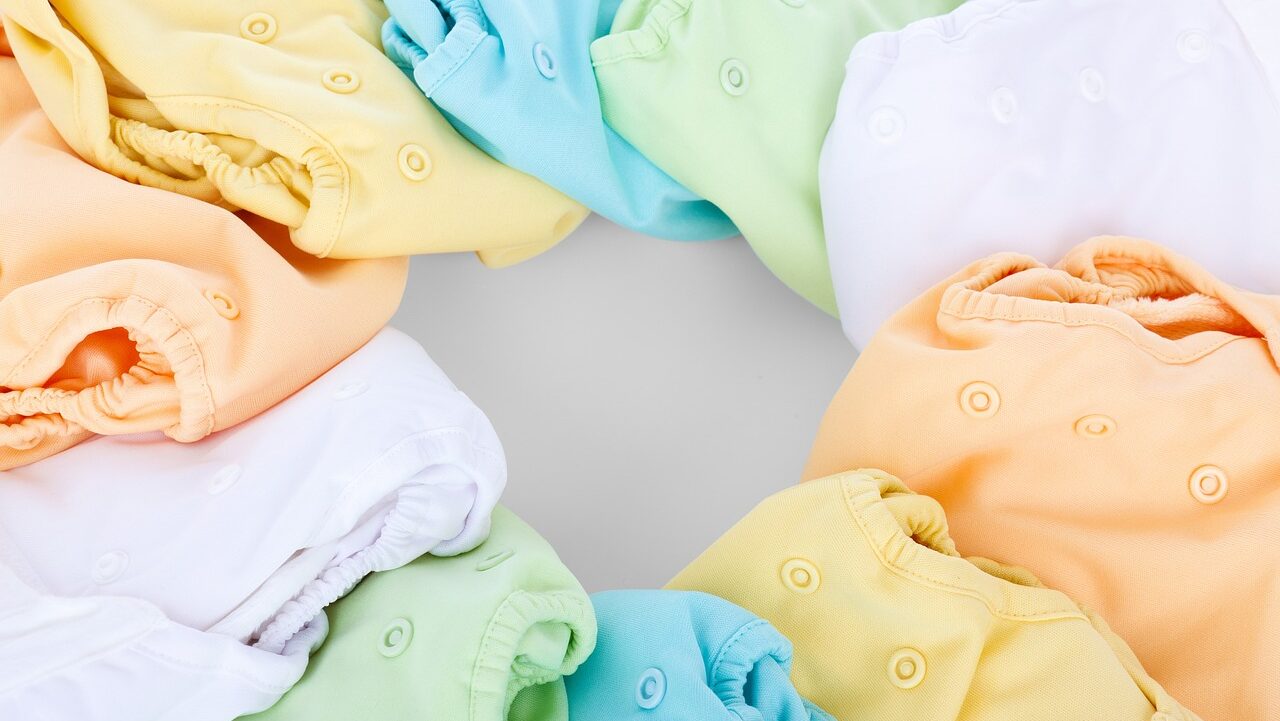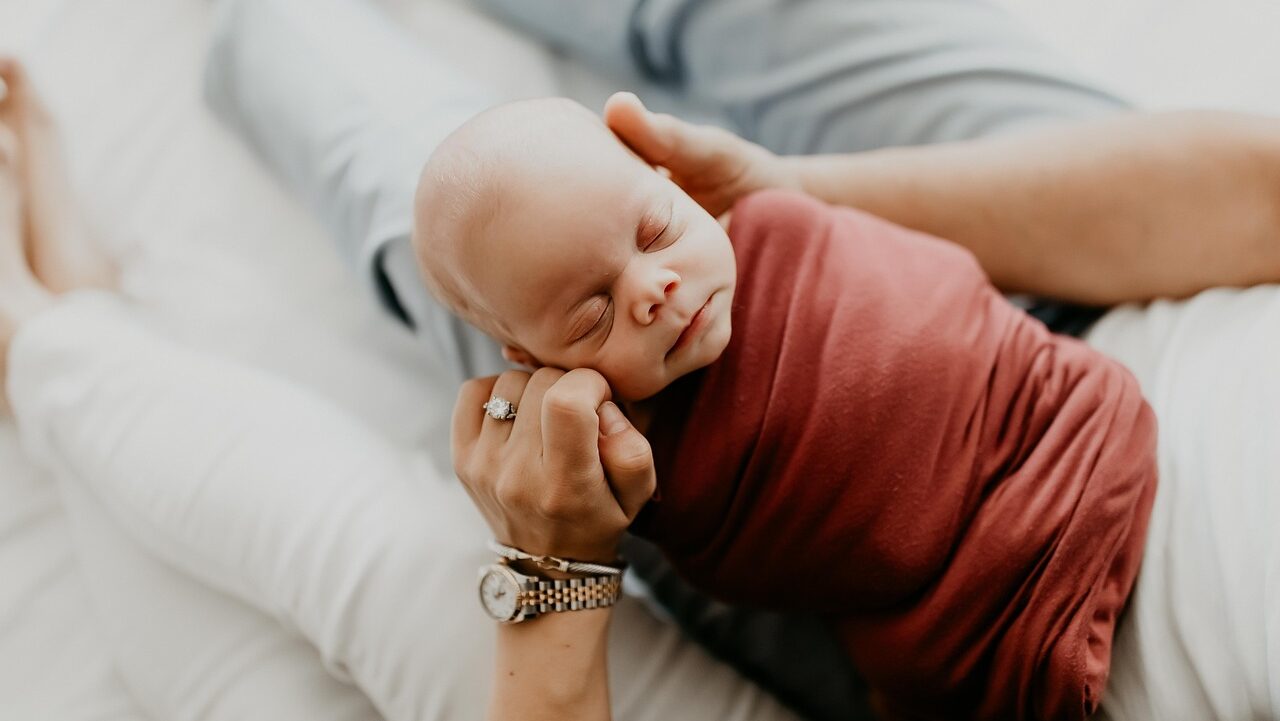As parents become more conscious about sustainable and health-friendly baby products, cloth diapering has seen a resurgence in popularity. Choosing cloth diapers not only helps reduce environmental waste but also provides numerous benefits for babies and families alike. If you’re considering making the switch, here’s everything you need to know about the advantages of cloth diapers, plus our top picks for non-toxic cloth diapers that prioritize your baby’s health.
Why Choose Cloth Diapers? The Top Benefits of Cloth Diapering
- Healthier for Baby’s Skin
- Conventional disposable diapers often contain chemicals, dyes, and synthetic fragrances that can irritate your baby’s sensitive skin. Cloth diapers, especially those made from organic or natural materials, are free from these potentially harmful additives. They allow your baby’s skin to breathe, reducing the risk of diaper rash and other skin issues.
- Eco-Friendly and Sustainable
- Disposable diapers contribute significantly to landfill waste and can take hundreds of years to decompose. Cloth diapers, on the other hand, are reusable, meaning you’re reducing your family’s carbon footprint. By using cloth diapers, you can potentially save thousands of disposable diapers from ending up in landfills each year.
- Cost Savings Over Time
- While cloth diapers may have a higher upfront cost, they are significantly more economical in the long run. Since they are reusable, you’ll spend less overall, especially if you plan to use them for multiple children. Cloth diapers can also be resold or passed on, making them an even more cost-effective choice.
- Comfortable and Customizable
- Cloth diapers are softer and more comfortable for babies, often made from natural fabrics like cotton, bamboo, and hemp. They come in a range of styles and adjustable sizes, allowing parents to find the perfect fit for their baby’s needs and age.
- Early Potty Training Potential
- Many parents find that babies in cloth diapers may be easier to potty train, as they’re more aware of wetness than with super-absorbent disposable diapers. This awareness may encourage them to learn potty skills sooner.
- Stylish and Fun Designs
- Cloth diapers come in an array of colors and patterns that make diapering more fun. For parents who enjoy customizing their baby’s wardrobe, cloth diapers add a touch of personality and style to each outfit.
Choosing the Best Non-Toxic Cloth Diapers: What to Look For
When choosing cloth diapers, look for options that are free from harmful chemicals like chlorine, phthalates, and synthetic fragrances. Opt for diapers made from organic materials and fabrics with certified safety standards, such as GOTS (Global Organic Textile Standard) or OEKO-TEX.
Here are some of the best non-toxic cloth diapers available today, chosen for their commitment to both baby’s health and eco-friendliness.
Top Non-Toxic Cloth Diapers for Safe and Healthy Diapering
- Esembly Cloth Diapers
- Why We Love Them: Esembly’s cloth diapers are made from soft, GOTS-certified organic cotton, ensuring they’re safe for even the most sensitive skin. The Esembly system includes an absorbent inner and waterproof outer layer, providing excellent leak protection. Additionally, the brand offers a range of non-toxic diapering products like pH-balancing wipes and skin-safe detergent for convenient care.
- Key Features: Reusable inner and outer layers, eco-friendly design, easy to wash.
- Best For: Parents looking for a comprehensive, non-toxic diapering system that grows with their baby.
- GroVia Organic All-in-One Cloth Diapers
- Why We Love Them: GroVia’s Organic All-in-One diapers are simple and highly effective, designed with ultra-absorbent organic cotton layers that help keep moisture away from your baby’s skin. They’re free from harmful chemicals and crafted to minimize leaks, making them a great choice for on-the-go parents.
- Key Features: One-size design, soft organic cotton, and available in various patterns.
- Best For: Parents looking for an easy-to-use, all-in-one cloth diaper that is also non-toxic and gentle on sensitive skin.
How to Get Started with Cloth Diapering
Starting with cloth diapers might seem overwhelming, but here’s a quick guide to ease the transition:
- Choose Your System: Decide between prefolds, all-in-ones, or pocket diapers. All-in-ones and pockets are often easiest for beginners as they’re similar to disposables in terms of use.
- Gather Supplies: You’ll need around 20-24 cloth diapers to wash every 2-3 days, along with wet bags, cloth wipes, and baby-safe laundry detergent.
- Learn the Washing Routine: Washing cloth diapers requires specific techniques to ensure they stay sanitary and soft. Many cloth diaper brands offer guidance on washing, so follow instructions to protect your investment.
- Experiment and Adjust: Every baby is unique, so you may need to try a few different types of diapers and inserts to find the best fit for your baby’s needs.
FAQs About Cloth Diapering
1. Are cloth diapers better for sensitive skin?
Yes! Non-toxic cloth diapers, particularly those made from organic materials, are gentler on a baby’s sensitive skin and can reduce the risk of rashes and irritation.
2. How many cloth diapers will I need?
Most parents find that 20-24 cloth diapers are ideal for washing every 2-3 days. This number can vary depending on the age of your baby and your washing schedule.
3. Can cloth diapers save money?
Absolutely. While the upfront investment is higher, cloth diapers can save you hundreds (even thousands) of dollars over time, especially if used for multiple children.
Final Thoughts: Why Non-Toxic Cloth Diapers Are a Great Choice
Cloth diapering offers countless benefits for families who want a sustainable, health-conscious approach to diapering. With options like Esembly and GroVia, parents can choose non-toxic cloth diapers that are gentle on their baby’s skin, kind to the planet, and friendly to their budget.
If you’re considering cloth diapers, don’t let the initial learning curve deter you. Once you establish a routine, cloth diapering becomes a convenient, rewarding experience that benefits your baby, your wallet, and the environment. Try a few of our top non-toxic picks and enjoy the peace of mind that comes with knowing you’re making a safe, sustainable choice for your little one.



